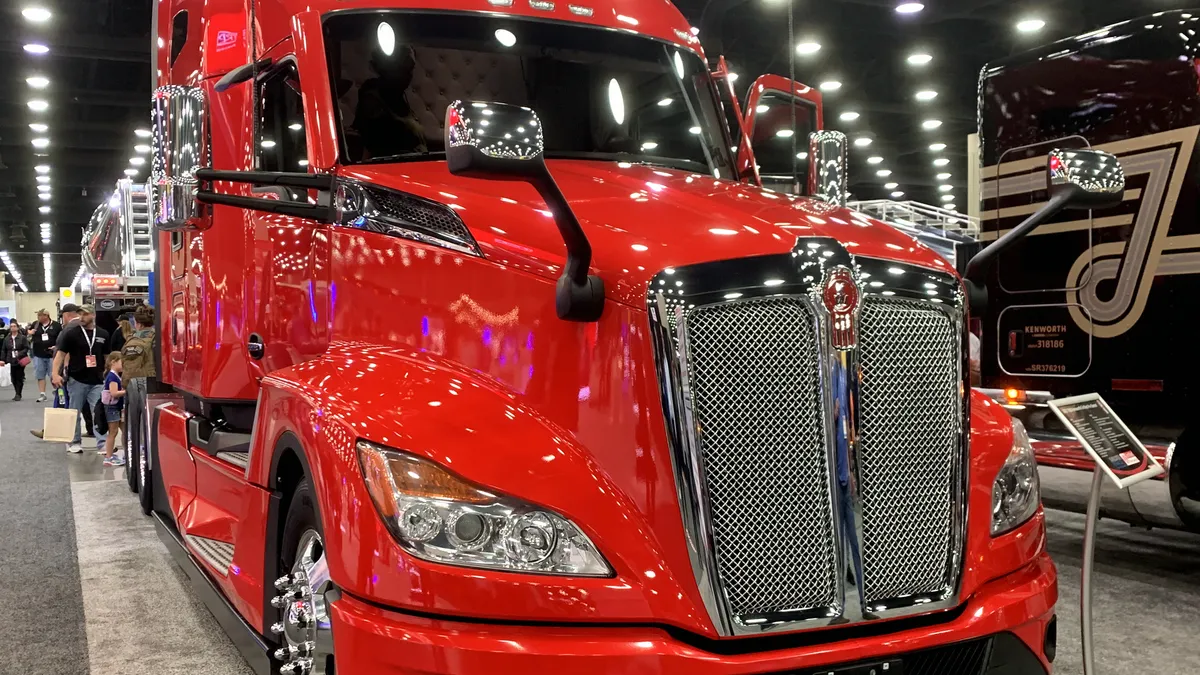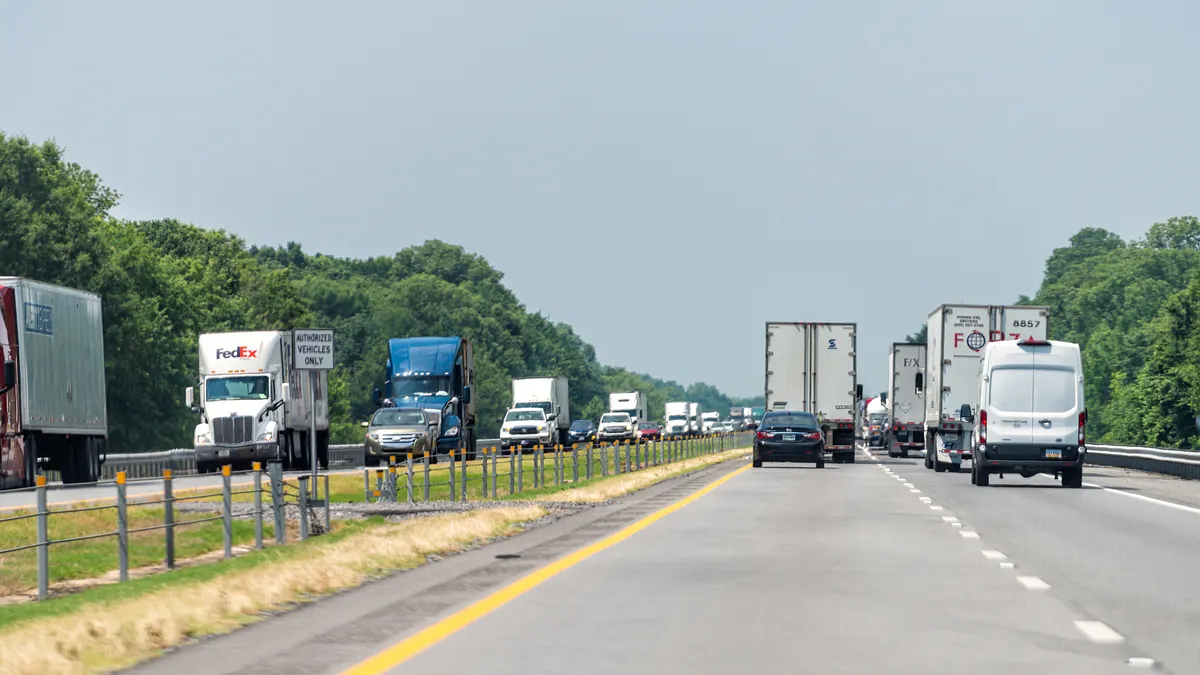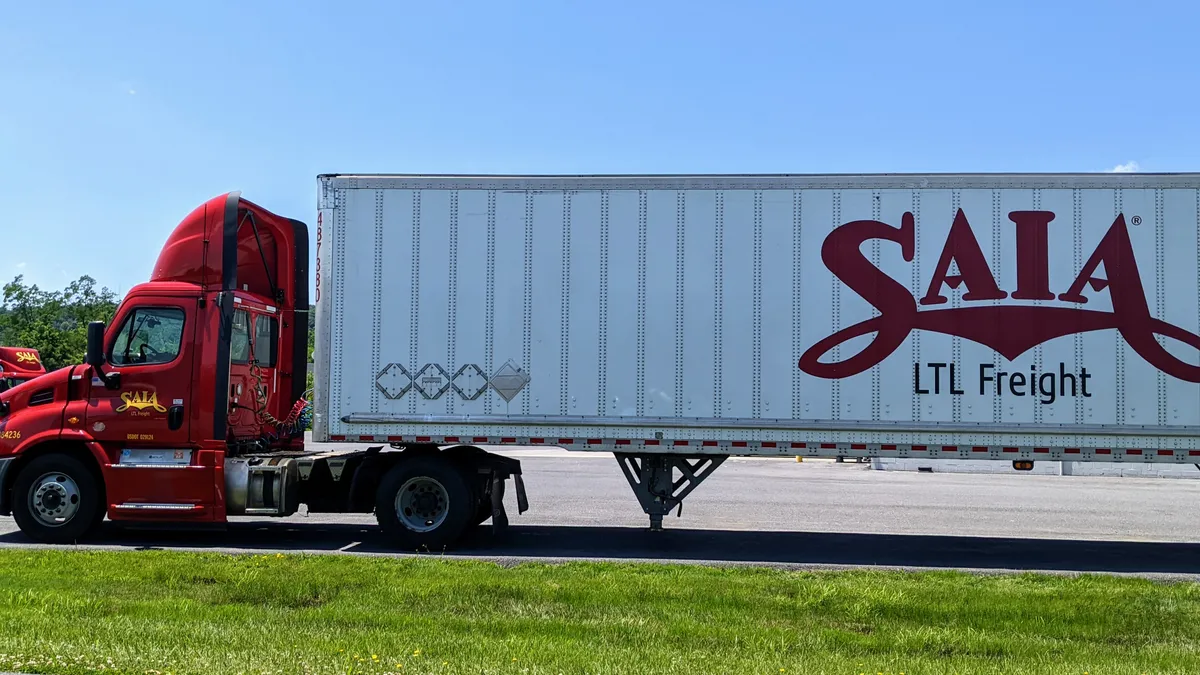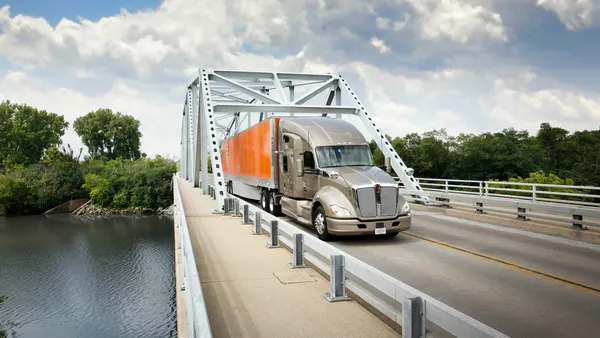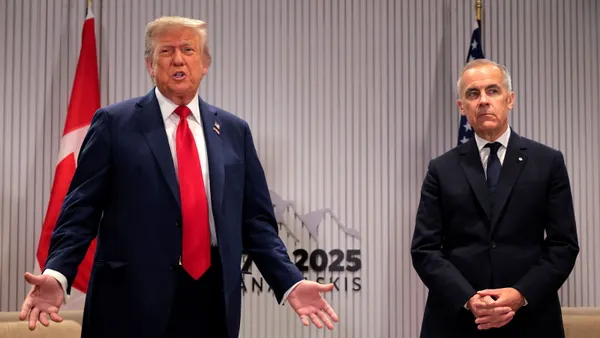Dive Brief:
- Paccar CEO Preston Feight believes the North American truck market will improve as tariff policies become more certain following the conclusion of a U.S. Section 232 investigation over national security concerns, he shared during the company’s Q2 earnings call held July 22.
- Paccar is estimating a $75 million impact from tariffs in Q3, he said. However, the final figure may vary following President Donald Trump’s plan to install a 50% tariff on copper imports, stemming from a separate Section 232 investigation earlier this year.
- “Clarification of the ongoing IEEPA and Section 232 trade policies could enhance market clarity, as well as benefit Paccar and our customers,” Feight said, noting how U.S. policy has cited the International Emergency Economic Powers Act to defend tariff moves.
Dive Insight:
While 90% of Paccar’s U.S.-delivered trucks are manufactured in factories located in the U.S., there are components for those trucks that come from facilities based in Mexico, Canada, Asia and Oceania regions, South America and Europe, which could be subject to additional tariffs.
As a result, Paccar — and the rest of the industry — is waiting to hear the results of the Section 232 investigation into the imports of medium- and heavy-duty truck parts. The public comment period ended on May 16, and the U.S. commerce secretary has through mid-January 2026, or up to 270 days since the investigation was initiated, to report findings to the Trump administration.
Tariffs justified through IEEPA powers have spurred lawsuits, and despite a U.S. Court of International Trade ruling against the Trump administration, a federal appeals court issued a temporary stay, allowing various tariffs to remain in place during the appeal.
Despite all of the unknowns, Feight said the Paccar’s team has been proactively working with suppliers to ensure the company is sourcing the maximum amount of parts certified under the United States-Mexico-Canada Agreement, based on current standards. The truck maker has also adjusted pricing strategies, adding a tariff surcharge in the U.S. and Canada.
Paccar began to feel the impact from the looming tariffs in Q2, as truck gross margins fell from 15% to 8.7% year over year. Deliveries were also down by 9,100 units, per the company’s Q2 presentation.
“I think that with uncertainty, customers kind of pause, and with clarity comes confidence,” Feight said during the earnings call. “So if we get confidence and certainty around tariff structures in the third quarter, then I think customers’ reaction to that will be positive, and we think that should be favorable for Paccar.”


